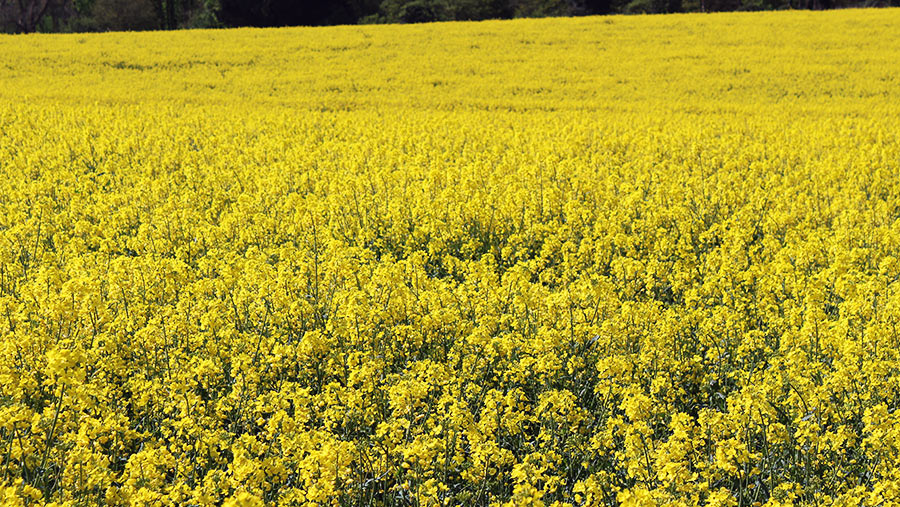NFU applies to use neonics on 11% of oilseed rape crop
 © Oli Hill/RBI
© Oli Hill/RBI The NFU has made an application for the emergency use of neonicotinoid seed treatments on about 70,000ha (173,000 acres) of England’s 2017 oilseed rape crop.
It is the third year running that the union has made such an application, which seeks to alleviate insect pest pressure on a proportion of the national crop.
Defra agreed in 2015 that neonicotinoids could be used on 30,000ha of oilseed rape, but in 2016 it rejected two applications for emergency use from the NFU.
See also: Bitter blow as Defra rejects second neonics application
Government officials claimed at the time the applications did not meet the criteria for emergency authorisations.
The NFU said it was committed to bringing forward evidence explaining the case for a limited number of farmers to have access to the insecticide in a controlled way.
Crop at risk
Guy Smith, NFU vice-president, pointed out farmers were facing a costly problem because levels of cabbage stem flea beetles were increasing.
Although many were changing their farming practices by adapting rotations to help them deal with the situation, some farmers had been forced to abandon the crop altogether.
“This application recognises that, because of the neonicotinoid restrictions, pest numbers have increased in recent years to such an extent that there are now areas of the country where these seed treatments are less likely to be of benefit,” said Mr Smith.
“Areas where the pest pressure is so high the risk of losing oilseed rape is too great and control with pyrethroids is compromised by increased pesticide resistance.
“Over-reliance on pyrethroids, caused by the neonicotinoid restrictions, is exacerbating this resistance problem.
Targeted application
He added: “But there are areas where the pest pressure has not reached these levels yet, and where resistance hasn’t been an issue, where we believe highly targeted, highly controlled use of neonicotinoid seed treatment would help deliver significant benefits in controlling flea beetles and allowing crops to establish and thrive.
“It is these areas, equating to 11% of the national crop, that we have targeted with this application.”
The application will be put to the Chemicals Regulation Division and the Expert Committee on Pesticides (ECP). They will make a recommendation to Defra, which takes the final decision.
The ECP has meetings scheduled on 14 March and 11 April.
If successful, the treated products that growers will have access to are Cruiser and Modesto.
The use of neonicotinoids was banned across the EU in December 2013 because of concern about their impact on bees and other pollinating insects.

